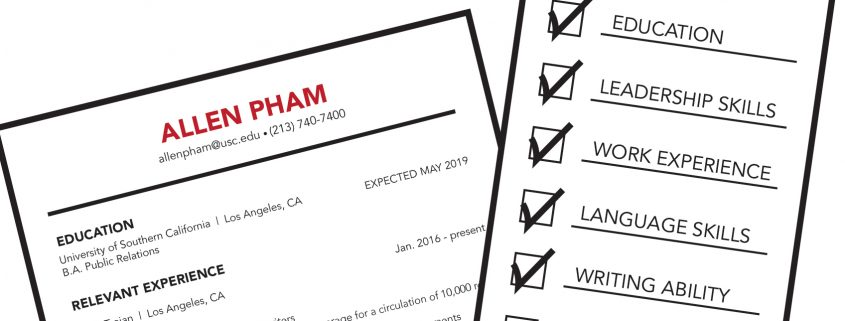COLUMN: Asian names still carry a stigma, especially in the workplace
On Thursday, NPR released a story about the significance of Asian last names in job interviews. According to a study conducted by Ryerson University and the University of Toronto, researchers found that employers inherit a systemic bias against minorities in hiring processes. In particular, they concluded that job applicants with Asian last names (Indian, Pakistani or Chinese) were 28 percent less likely to be called back for an interview in comparison to applicants with Anglo last names.
I had a visceral reaction to what I had read. As a first-generation Vietnamese American, I was not raised to assimilate with “American culture.” In fact, it was the opposite. Though I was born in America, I only spoke Vietnamese until I was six. My parents, as with many other Vietnamese parents in the community, knew the importance of passing on traditions to their children.
I embraced my Vietnamese heritage. My parents read me bedtime stories about great Vietnamese legends and emperors. At school, most of my classmates were also Vietnamese. In addition to celebrating other American holidays, teachers and students also held festivities for Vietnamese New Year. I was raised around people who shared the same background as me, who ate the same food as I did and who also battled with understanding their Vietnamese American background.
Things were different after I left for college — I became part of the minority. Though I knew I wanted to leave the cultural bubble that I was raised in, I was not prepared. When I arrived at USC, I felt like I had arrived in another world — one vastly different from the world I lived in 40 minutes away.
In a sea of 19,000 undergraduate students, I was only part of the 17.6 percent who identified as Asian American, while the majority of the student body was 33.1 percent Caucasian. USC is diverse — it’s a school that prides itself in the diversity of its students. However, I came to an immediate understanding as a freshman that if I wanted to find friends, I would have to choose between two dichotomies: join an Asian-based organization and make Asian friends or try harder to assimilate with a group of people who didn’t share any cultural similarities with me.
As this year came around, I began to think a lot more about my career path. I received an internship to work at a public affairs PR firm, and it felt rewarding knowing that I was making advances in my professional endeavors. I was relatively optimistic about securing job opportunities in the future because I thought that I had adapted well — enough to speak and interact with people beyond my cultural perspective. An internship at Porter Novelli or PMK-BNC didn’t seem too far-fetched because I assumed that my resume would speak for itself.
However, after reading that NPR article and doing some more research, I became severely disappointed. It’s alarming that in a multicultural country like the United States, systemic discrimination still exists in the workplace. I, like many other first-generation Asian Americans, worked hard to build a better future for myself. Our parents came to this country to give us better opportunities — they instilled in us a fighting spirit, with the belief that if we put our mind to something, we would be able to accomplish it.
However, to think that my ethnic heritage, my skin color and my name could be a reason for not getting job opportunities is truly disheartening. As the age-old argument goes, Asian Americans are not the “other.” We’re not “foreign.” We’re just as American as any other white person. But why are we treated so differently?
According to the NPR article, those with Asian last names shared the same qualifications as their Anglo counterparts, but were still less likely to get called back for a job interview. It’s egregious that systematic biases still exist today, and it’s disturbing that many other Asian Americans and I may face this form of discrimination in the future when we go out into the professional world.
It’s a sad day to learn that Asians still need to work harder to fit in, to belong and to earn the same merits as their white counterparts. And for me, reading that NPR story on Thursday night allowed me to come to the conclusion that my cultural differences will always set me apart from other people. I know that I’ll still carry the humiliating feeling of not belonging, not only in the social atmosphere but also in the world that I’ll step foot in after graduating. Nevertheless, I hold onto the hope that it will change.
I know my worth. I have my merits. And I’ll always love being Asian American. But when will I deserve the same treatment and respect as someone with a white last name?
Allen Pham is a sophomore majoring in public relations. He is also the lifestyle editor of the Daily Trojan. His column, “The A Game,” runs every other Monday.



Read that chapter in “Freakonomics” about “African-American names.” And do you know why Jews in Hollywood Anglocize their names, and other non-WASPs?…Now you know.
amazing article!!